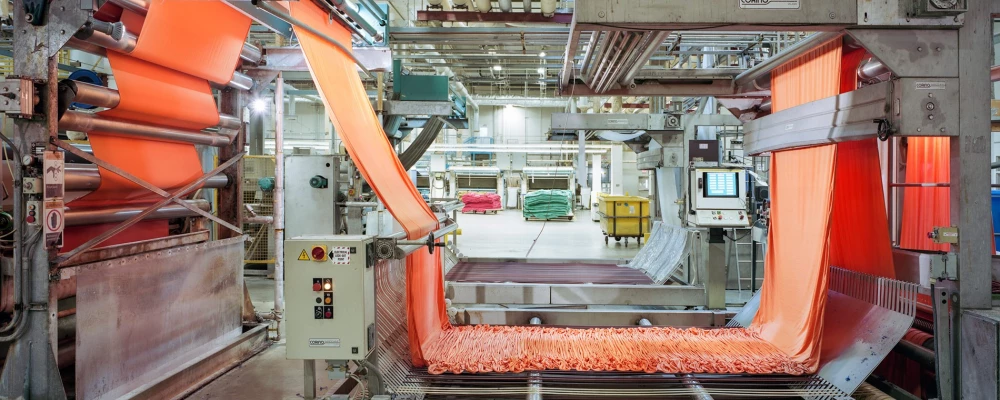
Eco producers, manufacturers and innovators at Première Vision September 2019
We spent 6 hours in just the one small section of Première Vision. We were only able to visit for a day, so decided to spend this time totting up our knowledge on trends within eco yarn and fabric production, as well as making connections with these fantastic innovators so that fingers crossed we can bring them closer to you via The Sustainable Fashion Collective.
We are hoping that we can get some (if not all!) on board for webinars and technical tutorials, where we can have deeper conversations about the processes, advantages and drawbacks of the innovations, and avenues for fashion businesses to utilise the product or service.
If you want a closer look at why we were at the trade show, or in fact why you should go yourself, take a look at this journal post for tips on attending shows like Première Vision. For now we wanted to give you a rundown of the cool things we saw, so that you too can further your curiosity.
In this post you'll learn about:
- eco yarn producers
- eco fabric manufacturers
- sustainable tech innovations
- eco packaging manufacturers
- responsible leather producers
- sustainable trim manufacturers
- glossary of ethical certifications
Fabrics:
Cocccon (India) - luxe GOTS-certified silks with transparency of how the silkworms are bred, fibre cultivated and fabric produced. Minimums are fairly low at around 40 metres. We hope to provide their fabrics in even smaller quantities for you.
RDD Textiles (Portugal) - offers jersey fabrics in natural fibres, including organic and recycled alternatives; as well as new age artificial fibres as Tencel, Refibra and Viscose Ecovero and also recycled synthetics. They are GOTS, Oeko-Tex, OCS (Organic Content Standard), GRS (Global Recycle Standard) and BCI (Better Cotton Initiative) members.
Cotonea (Germany) - a vertically integrated mill that offer traceability from fibre to fabric of their GOTS and Fair Trade certified cotton, grown in Uganda and Kyrgyzstan.
Manteco (Italy) - traceability of fibre to wool fabric, and the increased use of recycled wool (from various animal hairs) in line with their circular principles. They hold certifications for their recycled fibres from GRS, and operate with a no mulesing policy to therefore hold the Responsible Wool Standard certificate. They blend with BCI cotton and Lenzing Tencel. They're also ZDHC certified, though it's not clear if this is for a fibre they import or produce themselves. As part of the Smart Showcase.
Primaloft (Germany) - if you're a designer or producer of outdoor clothing, then Primaloft insulation is something to look at. They've just released their recycled biodegradable synthetic insulation Primaloft® Bio™ that has been developed to be "appetising" to landfill microbes, but comes from 100% recycled content. As part of the Smart Showcase.
Brugnoli (Italy) - really stunning quality fabrics for swimwear and sportswear, produced with circular systems in place. The Br4® fabrics are created with low impact production process in terms of water and energy (-20% compared to standard process) and with a bio-based polyamide, from a totally renewable source. B.recycled fabrics are created with premium recycled polyamide with low consumption of energy and water, and B/back fabrics are created with polyamide of enhanced biodegradability creating a 3/5 year cycle compared to the 50 needed by a standard polyamide.
C.L.A.S.S. (Italy) - this 'eco hub' offers a smart materials bank and consultancy for designers who want to integrate sustainability within their whole supply chain.
Polartec (USA) - creators of modern synthetic fleece (back in 1981) with super tech capabilities, but now of course also produce recycled polyester fleece too. They provide in-stock fabrics so as designers you can even get hold of these tech textiles with 200 yard minimums, and shipment direct from the US or China.
Ananas Anam / Piñatex - the Cradle to Cradle certified non-woven material produced from pineapple byproduct. They do work with small brands on small quantity orders.
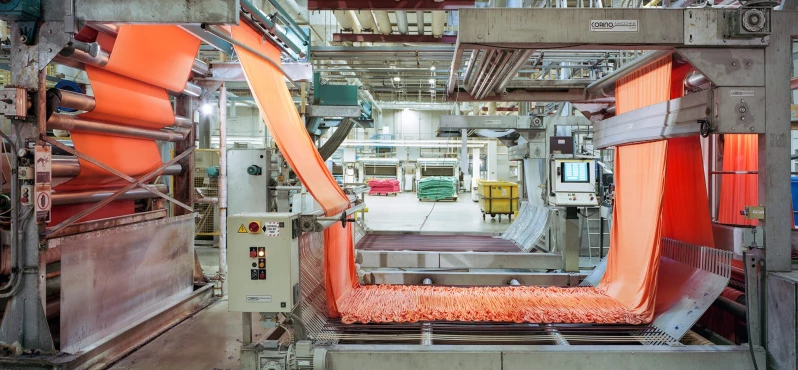
Trims and components:
YKK (Germany) - there was quite a lot on show from YKK if you're looking for more sustainable zip options. They had 'eco-plating' metal certified by Made By, tapes made from rPET, organic cotton and Tencel, as well as no dyestuff, solution dyed and plant-based molasses zips. We wondered about a take back scheme for garment recycling, but as yet they don't have the infrastructure, preferring to focus on the product. They do also have ZDHC, Oeko-Tex and Bluesign certifications.
Prym (Italy) - leading producer of trims showcases their eco-plated denim buttons and press fasteners. Unfortunately the exhibitor at the time didn't seem to know much about the products, but it seemed that at least they were putting efforts into development of better metal finishings. They already mainly only use brass as the base metal.
Charle Berlin (Germany) - wonderful natural rubber and organic cotton elastic tapes and cords, produced in Austria as part of a family business, using energy from own hydro-electric power plant, with short transport distances to the distribution in Germany. They are GOTS and REACH certified. They supplied Very Good Bra with the tapes and straps for their biodegradable circular bras (see the interview with them here). We hope we can stock these elastics in small quantities in our haberdashery - what do you think?
Knopf Budke (Germany) - natural buttons of shell, horn, wood, coconut and corozo. They supply low quantities for designers. The exhibitor we spoke to was so immensely riled up about the materials Knopf Budke use and why, we really want to get them on board to explain to you all why natural material buttons are more sustainable.
Corne et Corozo Réunis (France) - heritage button production, using natural materials such as corozo, cotton fibre, olive wood, horn, shell, metal and pineapple leaf fibre for their buckles. They also dye and design to your specifications. As part of the Smart Showcase.
Valter (Italy) - intricately designed components and beads for accessories and jewellery, with a new highlight as part of the Smart Showcase being bioplastic. As part of the Smart Showcase.
Achille Valera Lissoni (Italy) - heritage shuttle loom grosgrain ribbon made using GOTS-certified cotton and Newlife recycled polyester yarns. As part of the Smart Showcase so unclear on minimums.
Red Button (Turkey) - buttons made from recycled and raw metal (no finishings), corozo, horn, coconut and wood and even corn rivets. As part of the Smart Showcase so unclear on minimums.
Zip Goffredo s.p.a. (Italy) - vertical integrated factory that produces zips with Oeko-Tex certification. Natural materials are generally used for the tapes with low impact metals for the teeth and sliders. There isn't much environmental information on their website though, but deserves digging for the quality of zip. As part of the Smart Showcase.
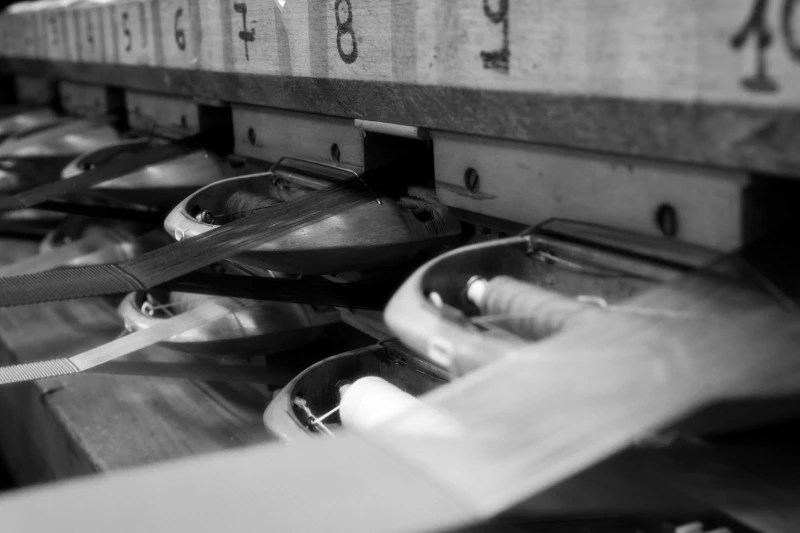
Leather:
beLEAF™ from Nova Kaeru (Brazil) are elephant ear leaves collected in sustainable areas and planted within reforestation communities. The material is a whole leaf that has been coated to feel like leather, but with a lining of suede or linen for breathability and comfort. It wasn't clear what the coating was, but felt like latex and comes in both gloss and matte. A really interesting leather alternative.
Recyc Leather - leather textile created from pre-consumer wastage of domestic gardening gloves factories, saving 200 tons of leather waste per month. REACH and recycling standard certified with tracebility of the material and tech sheets for product information. They use a natural latex to bind the fibres, so the new leather material is tough but malleable like virgin leather. Currently they can only ship within Asia, though they do have a France-based office.
Deepmello (Germany) - 100% produced in Germany, this is vegetable-tanned leather with a difference. They use rhubarb to tan their leathers, offering a chromium-free alternative plus they say a unique fragrance. We didn't smell anything less-leathery about the material but it was beautifully thick and soft. At first we thought this was leather created using rhubarb waste, so a little disappointing, but if you're looking for a Europe-based and metal-free leather, this could be for you.
Dani s.p.a. (Italy) - full cycle leather, which means that it is produced within one region of Italy ensuring traceability and secure local economy. The leathers are metal-free, and the factory management is ISO certified. As part of the Smart Showcase.
Bonaudo (Italy) - another Italian leather facility with traceability and same-region production. ISO certifications. They do allow small quantities, and specialise is the more unusual leathers like kangaroo and goat... you need to do your own research to what suits you. As part of the Smart Showcase.
Raynaud (France) - a family-run, heritage family business who state that their lamb skins come from by-product. They have a water treatment plant, use chrome-free tanning, and all chemicals are complicit with REACH and ZDHC regulations. As part of the Smart Showcase.
Atko Planning Inc (Korea) - brand new textile company that specialises in recycled leather textile and yarns, with Global Recycling Standard certification. As part of the Smart Showcase.
Chiorino (Italy) - leathers that felt like rubber with biosolvent PU coatings, good for accessories. It is their Green Collection that was showcased, due to the energy reduction, metal-free tanning and waste capture. Chemicals comply with ZDHC. Another one that needs further research. As part of the Smart Showcase.
Toray (Japan) - Ultrasuede® is a pre-consumer recycled polyester non-woven material, but at the show also highlighted a plant-based version. It seems that they're constantly evolving their processes, but as fair as faux suede goes, this felt really good though as always needs further research. As part of the Smart Showcase.
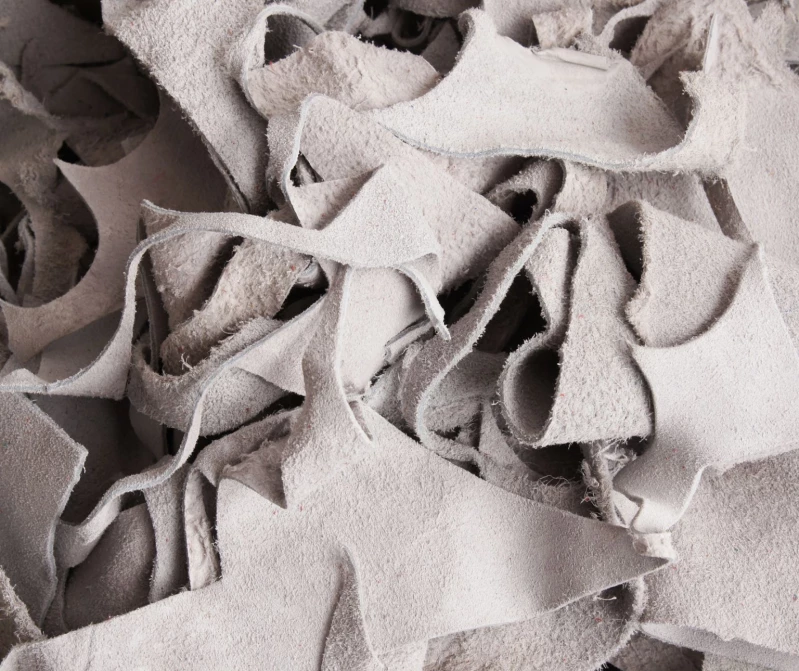
Packaging:
Mainetti (Italy) - producers of packaging for brands, with a recycling policy in place to recycle existing hangers where possible that involves apprenticeships as close to home as Wrexham, UK. They have low minimums: 100 MOQ on rPET and heavy duty paper hangers, 1000 MOQ on poly bags for distribution and storage, 500 MOQ on cloth bags for customer-facing presentation.
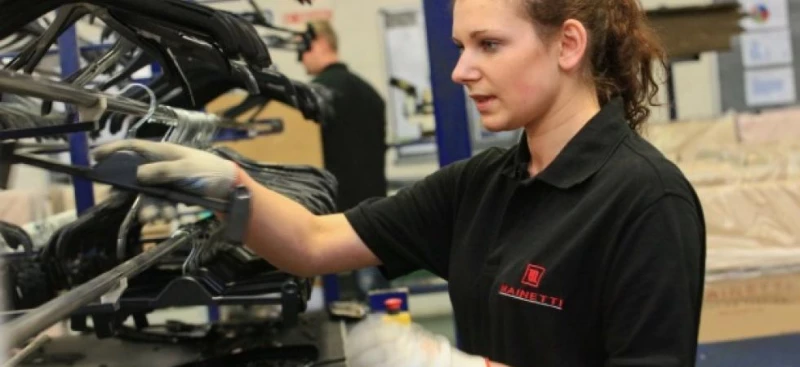
Yarns:
Evernu (USA) - a textile innovations company that recently partnered with Adidas x Stella McCartney for the NuCycl fibre made from discarded clothing. Not ready for marketing so couldn't comment further about their tech, let alone how small designers can use the yarn, but as with all innovations they need time to settle in, so keep an eye on this one as it is good news for fibre recycling.
Supreme Green Cotton - Greek family farms with ginning mills only a few kilometres away from the spinning mills. Full traceability with a QR code. Non-GMO.
Fritsch Färberei (Germany) - merino, silk, alpaca and cotton yarn production and dyeing, with GOTS and Oeko-Tex certification. What's great about these is that they use commerciall-produced natural dyes including madder root, logwood, weld, indigo, cochineal, yellow wood, and redwood and there isn't a minimum order so you can have stock yarn for your knit or woven fabrics.
Recover (Spain) - family-run producers of upcycled yarn using cotton from old clothes and scraps, polyester from plastic bottles and wool from post-consumer scraps. The yarns are produced specifically for various applications., including tech. They are GRS and Oeko-Tex certified. You can watch their recovery process on their website.
Sedacor (Portugal) - creators of cork fabrics for accessories and shoes, as well as 'leather' with prints for upholstery. It is a very malleable material, that they even created yarn with to showcase a woven rug.
Lipaco (Portugal) - yarn producers, with specialism in sewing thread. Now they use recycled polyester and lyocell, which is very interesting for the sewing thread aspect in terms of creating one-fibre apparel. As part of the Smart Showcase.
Inovafil (Portugal) - spinners of yarns for high-performance fabrics, with GOTS, Oeko-tex and GRS certification. They're also a BCI member. As part of the Smart Showcase.

Tech:
We Are Spin Dye (Sweden) - they class themselves as an "ingredient brand" that offers a technically innovative colour system. They produce yarns with considerably less water and chemicals by adding the colour pigment to the spinning solution, rather than after the production stage. This then means homogenous yarns with no later dyeing affects on the environment. They supply both yarns and fabrics, with overstock offered for designers (fi you get in touch with them). It is all fully recyclable and traceable.
Circulose (Sweden) - circular cellulose fibre produced from discarded textiles as well as pre-consumer waste. Already working with big brands, but unfortunately they only sell the pulp: once the cellulose has been extruded into sheets and dried, this is sold to yarn manufacturers so at the moment you need to have access to that part of the supply chain.
Circular Systems (USA) - we have a full journal post on this company after their incredibly insightful Smart Talk as part of the Smart Creation Universe. As an introduction, Circular Systems produce yarns in three ways: Texloop is pre- and post-consumer waste, Orbital Hybrid Yarns (yet to be patented) are circular materials from organic and recycled fibres for tech purposes, and finally Agroloop are yarns produced from food biowaste. They believe in beneficial impacts with open-source technology that is massively scalable.
Eastman (USA) - cellulosic yarn produced from sustainably-sourced wood. Naia™ offers full traceability from tree to yarn, and is made by Eastman in the USA with the highest safety, social, and environmental standards. They are FSC certified.
Drip By Drip - an NGO looking to waterless tech for fabric production, involving fibre cultivation, dyeing, water capture and recycling and including carbon footprint of transportation. All fabric sales donate 10% to wastewater projects in Bangladesh.
Centrocot (Italy) - applied research and technological development, mainly in response to the circular economy. They have two really cool projects: R&D for a micro plastics filter on washing machines, and also a platform to link businesses for waste textiles. Their main purpose is to issue Oeko-Tex certifications in line with their testing laboratories.
Greendyes (Spain) - mega innovations from this company in the form of cold-dyeing commercial natural dyes. They are Cradle to Cradle and Oeko-Tex certified for their yarns, and GOTS certified for their fabrics. They were part of a Smart Talk within the Smart Creation Universe, along with Circular Systems so we have a journal post specifically about this company.
Parley (USA) - actually a campaign group that uses the manufacturing of yarn from ocean plastic as a catalyst for awareness, funding and eco-innovation.
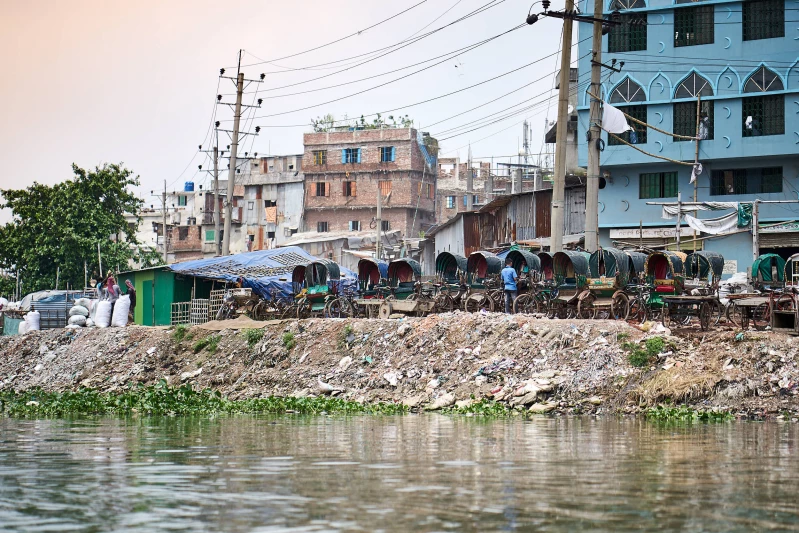
Manufacturing
Piece and Co Inc - a social enterprise that enables 5000 artisans in 16 countries to develop into small businesses that can compete in the global marketplace. They have a vetting process for quality, enviromental and social responsibility.
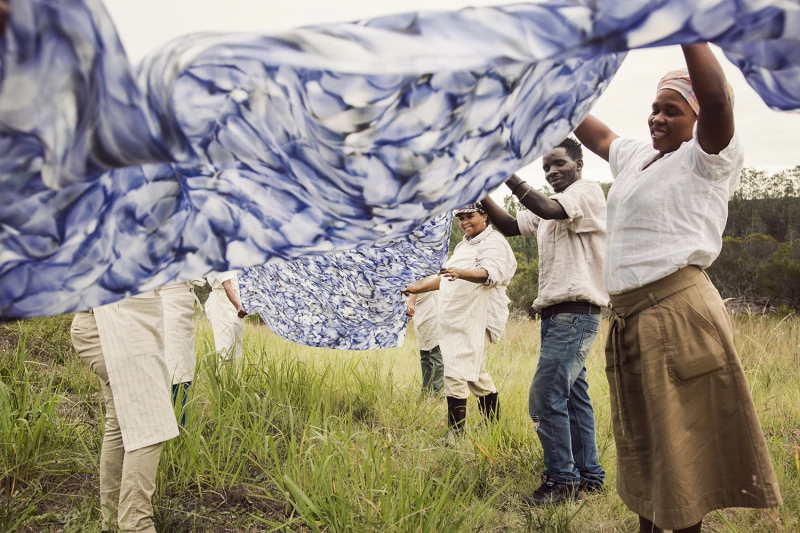
Full list of Smart Creation exhibitors
Glossary of Ethical Certifications (downloadable for Professional Members)
